-
French recipe: duck Parmentier
Chef Matthew Ryle's mouth-watering French classic elevates shepherd’s pie with confit duck legs, perfect for warming up in cold weather
-
American diner and British café offer a taste of home in France
From big cities to tiny villages eateries are challenging preconceived ideas of Anglo-American cuisine
-
La Chandeleur: French ‘Pancake Day’ is on February 2
When, why and how France celebrates this centuries-old Christian Candlemas crêpe tradition
Michelin star chef makes Loire France’s sustainable eating capital
Eco-responsable chefs are tackling climate change with their delicious food. The Connexion’s Tamara Thiessen visits the Loire to find out how
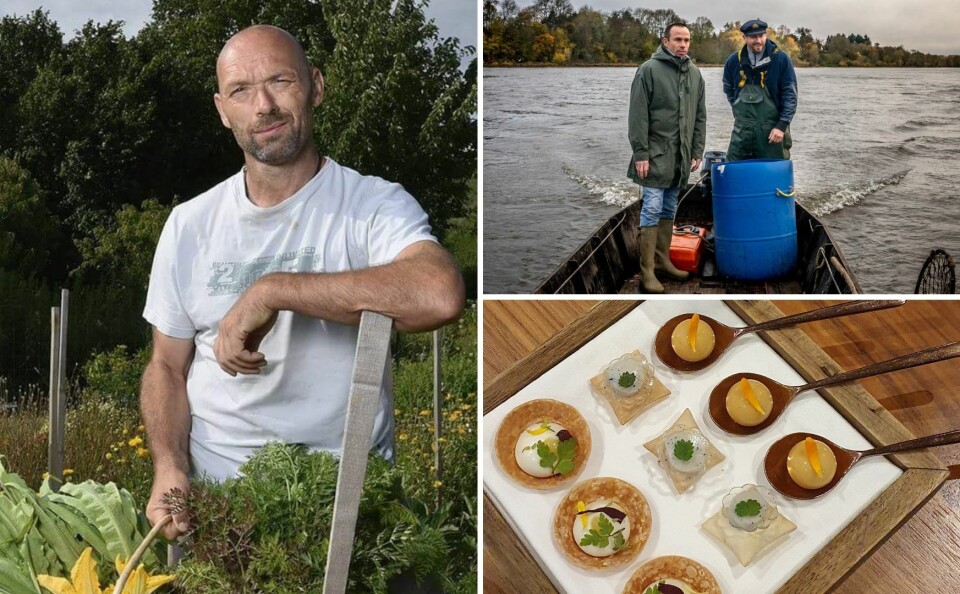
Sitting at a picnic table alongside the A10 autoroute somewhere between Paris and Orléans, some writer friends and I are tucking into an incredible spread – a Bento box with a big French culinary difference.
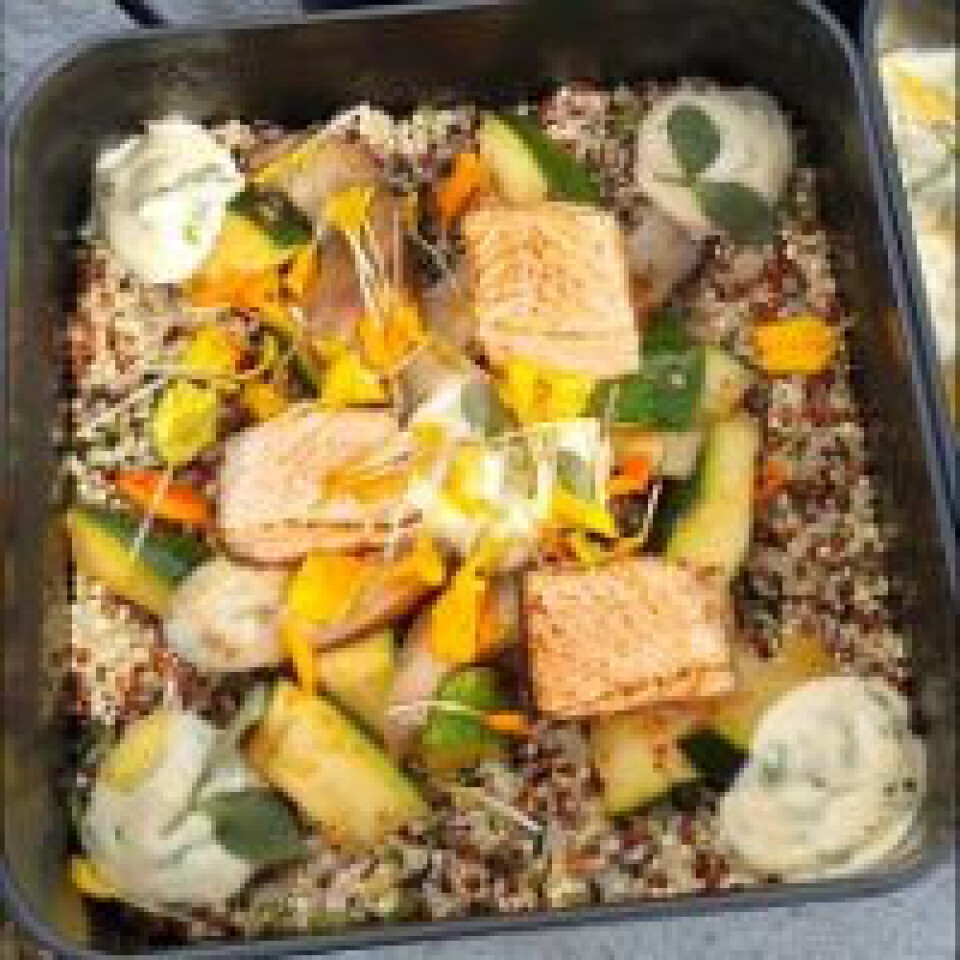
Bento box chic by Gaëtan Evrard. Photo: Tamara Thiessen
The chic black containers unstack to reveal a colourful meal of creamy courgette curry and nasturtium salad, quinoa and salmon also garnished with orange flowers, and a mousse au chocolat to die for.
There is enough to feed a small army.
It is the chicest casse-croûte – a quick bite along the way – I have ever seen.
Nature and terroir in the Loire
The Bento box gourmand is the creation of Michelin-starred young chef Gaëtan Evrard, a self-declared lover of nature and his terroir.
He is one of a number of chefs in the Centre-Val de Loire who are turning the central France region into a hub of sustainable gastronomy.
These so-called éco-responsable cooks want to grow their ingredients, buy at source from local farmers, and revive lost traditions.
Organic and creative
“The earth, the forest, the garden, the harvesting, the ocean spray, the farms, the orchards are my playgrounds,” Mr Evrard says. “They are my sources of inspiration.”
The menus at his restaurant, l’Evidence in the Indre, are made up of poetically-named seasonal “moments” – Spring, Sea Spray, Land and Sea.
The dishes are characterised by their freshness, organic forms, riot of intense colours, and stamp of French culinary creativity.
Now, however, he has turned his attention to a brand new venture in Indre-et-Loire.
New treehouse venture
Loire Valley Lodges comprises 18 treehouse suites perched high in 750 acres of woodlands – oaks, Douglas pines, chestnuts and sophoras – where wild boar, deer, egrets and herons roam wild.
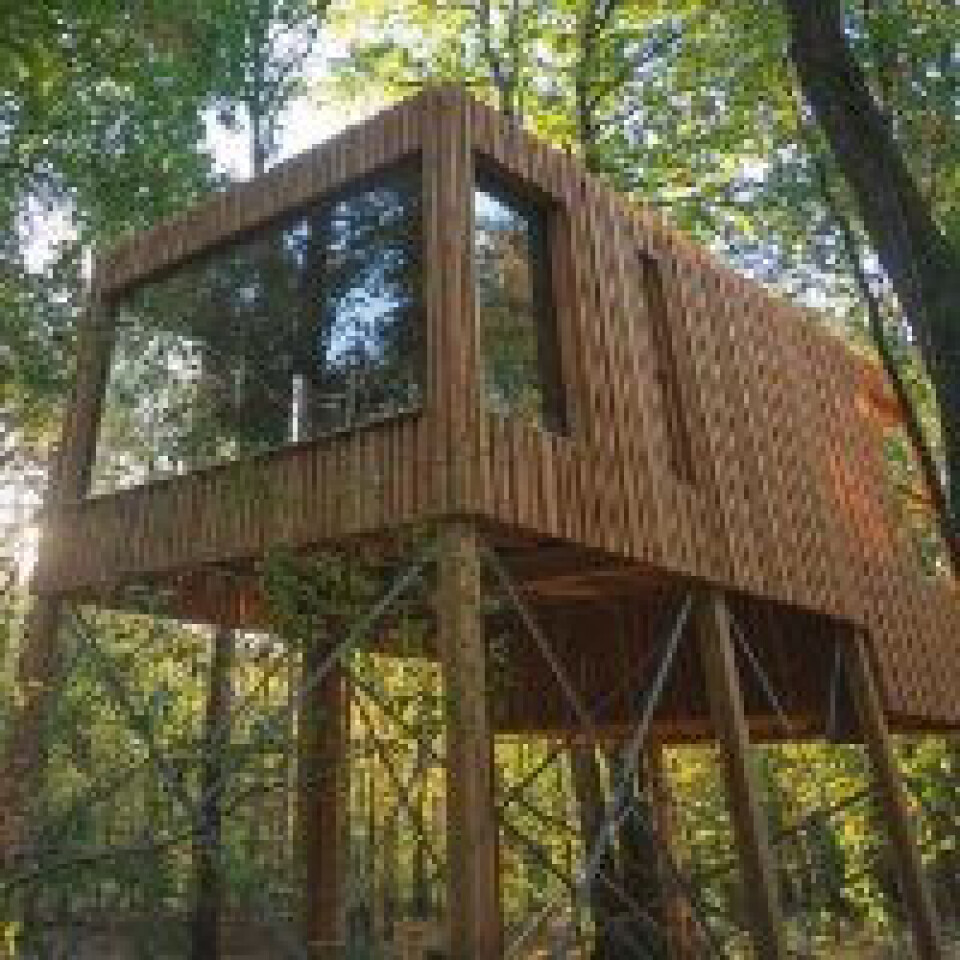
Loire Valley Lodges tree-top view with food ingredients fresh from the garden. Photo: Loire Valley Lodges
“The DNA of the place is nature, forest, the earth, the garden, the crops and orchards,” says owner Anne-Caroline Frey.
She wants guests, who can expect to pay €400-€500 a night for a two-person lodge, including breakfast, to experience its “raw natural beauty”.
Food is primitive
With Gaëtan Evrard, it seems she has found the perfect accomplice to embody this philosophy at the lodge’s restaurant, Ardent.
Wood-fired cooking allows him to serve up what he calls “immersive, primitive cuisine”.
My carrot and purple artichoke main course certainly boasts a deep, rich taste, fresh from the garden.
As do the lemons, tomatoes and basil in the accompanying sauce vierge.
Local or homemade
Mr Evrard’s focus on short food supply chains works well here.
He sources ingredients from a number of local producers and farmers, and makes his own products, including beer, wine and honey.
No plastic
Breakfast, delivered in a basket suspended at the base of my stairs, includes local yoghurt, cheese, milk, butter and garden-fresh cucumbers, celery, kale and apple juice.
Plastics and other waste packaging are conspicuously absent.
Everything is served in bowls or biodegradable bags.
Loire becoming eco-hospitality hub
Over the next two days, the éco-responsable groundswell is evident elsewhere in the Loire Valley, from restaurants to guesthouses.
Orléans bolthole the Empreinte Hôtel on Quai de Chatelet, for example, carries an éco-hébergement label, while Martin-Pouret Maître Vinaigrier in rue Jeanne d’Arc claims a focus on tradition and sustainable consumption.
Provenance is everything
Co-owner Paul-Olivier Claudepierre audaciously boasts the maison makes better mustard than Dijon, using French mustard seeds crushed with a stone grinder.
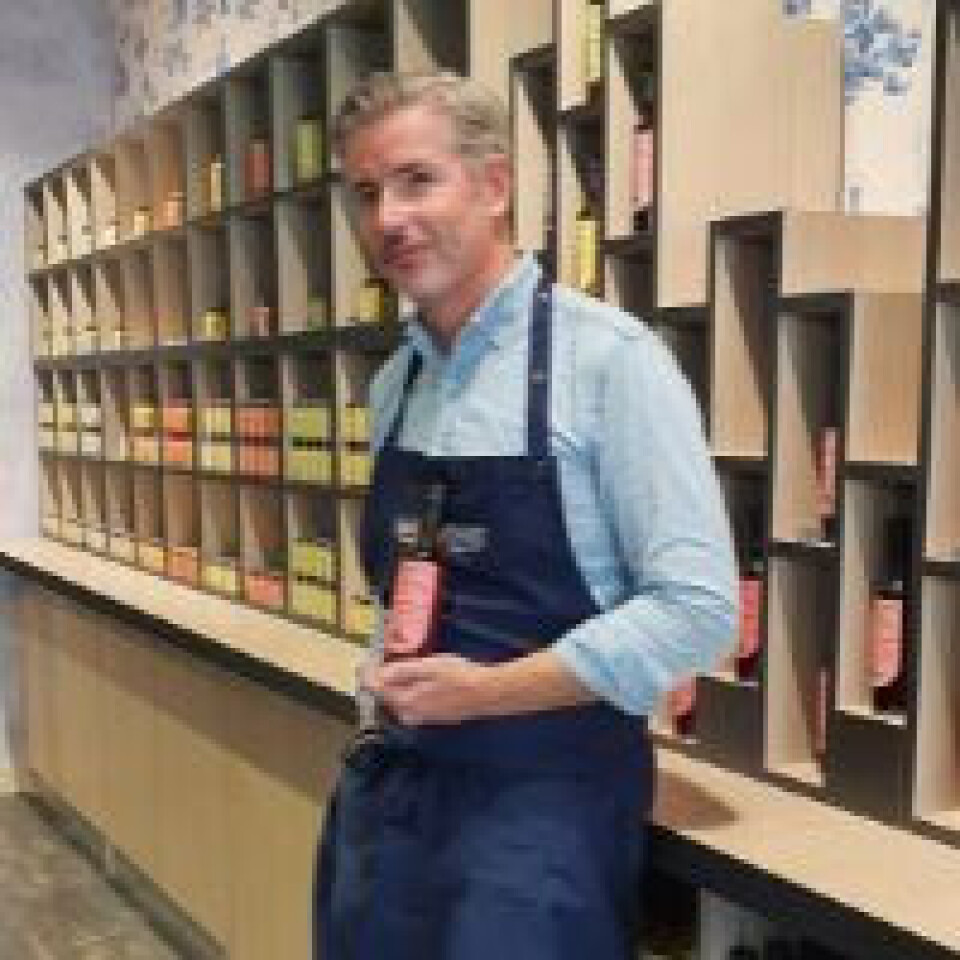
Paul-Olivier Claudepierre is proud of his vinegar. Photo: Tamara Thiessen
“Our production chain is 100% French, with mustard seeds grown in Pithiviers, not in Canada like most Dijon mustards.”
Quality products, from Indian spiced mustard to raspberry vinegar aged in oak barrels for 13 months, saw business boom through the pandemic.
“The agri-food industry fared relatively well because more French people cooked at home,” Mr Claudepierre explains.
“Our products fall perfectly in the niche of eating better, less, and responsibly, which the public is increasingly looking for.”
Local food cruise on Loire
In the evening, we hop aboard a beautiful wooden boat, the Epinoche, for a culinary cruise along the Loire, France’s last wild river.
Chef Ludovic Baubert is equally passionate about the back-to-the-source movement among cooks, producers, and other tourism players in the area.
“We cook only with local products. The idea is to limit food supplies within a 40km radius. So we use fish from the Loire river, local cheeses – even these small carrots are from a nearby farm.”
Not forgetting the superb vins du Val de Loire that accompany our meal.
Chefs use Château de Chambord market gardens
Mr Baubert reveals how he forages among the market gardens of the Château de Chambord for ingredients for his meals and catering business.
And he is not alone. Many chefs in the area do the same.
“The Jardins-Potagers de Chambord are part of a perspective of agricultural renewal with the development of organic, ecological and soil-regenerating agriculture,” the chateau says.
“Short circuit fruit and vegetable production (of over 40 varieties) are part of a territorial dynamic.
“The care taken in every aspect of production gives vegetables exceptional flavours, nutrients, colours and textures.”
Loire Valley shouting about eco-food and heritage
The chateau adds that its “spirit of eco-responsibility” and sustainable development is all part of preserving the estate’s historical and natural heritage.
The Prairie des Casernes fields have been vegetable gardens since the 17th century.
While Val de Loire chefs and producers are by no means the only ones in France championing these philosophies, they seem to be among the most visible.
Chef of the Year 2021 from Loire
Local boy Christophe Hay, who also happens to be France’s Chef of the Year 2021, is a case in point.
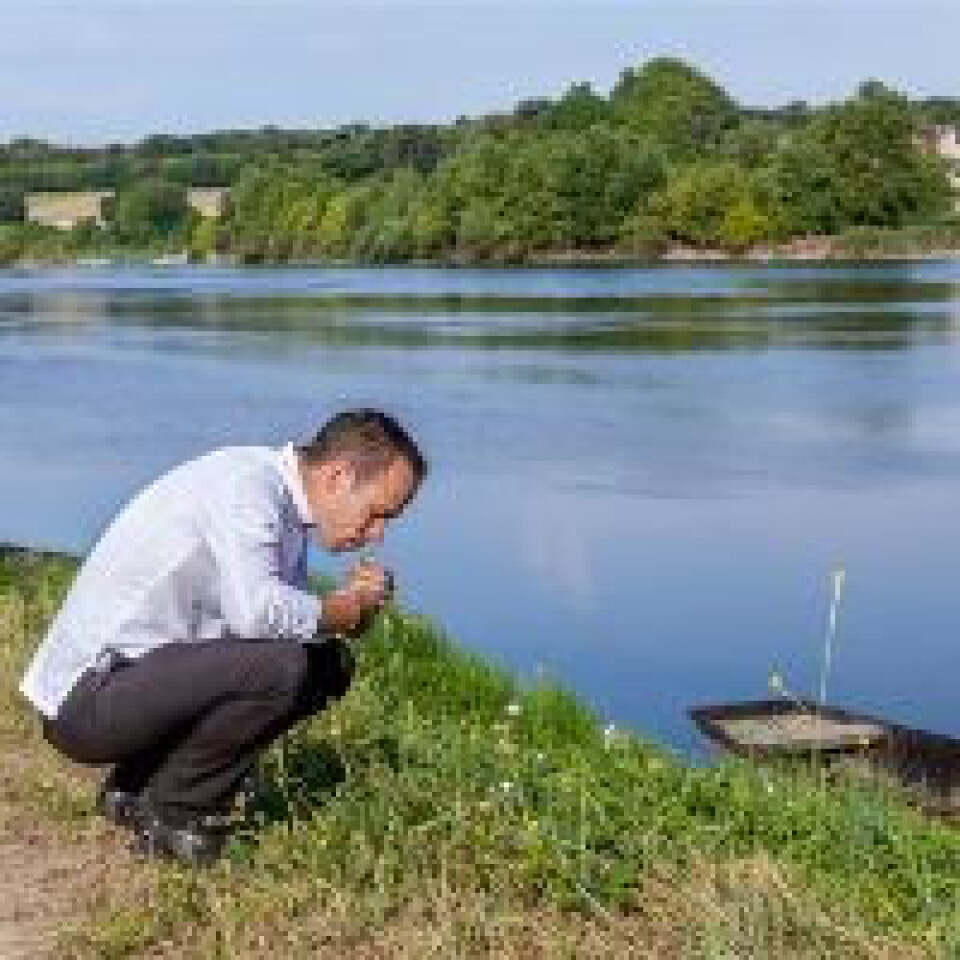
Chef Christophe Hay says the Loire is his lifeblood. Photo: Christophe Hay
He regularly visits producers from his Loir-et-Cher homeland to source ingredients – from prized Gélines de Touraine chicken to beef, asparagus, honey and caviar – and even heads out with fishermen on their boats.
Eco chefs join forces
A proud terroirist, he has been passionate about supporting small food industries here since returning to the Loire six years ago.
Mr Hay is recognised by Michelin not only for his culinary prowess but also for his gastronomie durable.
He heads up an association called L’R Durable (la restauration durable) – a group of chefs committed to sustainable restaurants.
Local Loire produce is key
The menu at his newly launched maison gastronomique in Blois, the Fleur de Loire, like that of his former two-star Michelin restaurant La Maison d’à Côté, revolves around local produce and ingredients from his own garden.
The Loire is his lifeblood, he says: “The river, waterways and ponds, forests, fields and gardens, castles, farms, vineyards, wild fauna and flora.”
It should come as no surprise that the country of gastronomy and art culinaire regularly tops global charts for sustainable food production.
Star chef and educator
France’s measures to tackle food waste, promote healthy lifestyles and adopt eco-farming techniques have seen it rank first in the past, although last year it slipped a little.
As an ‘ambassador chef’ for the Loire Valley region, Mr Hay is also involved in educating children about good food habits, starting from primary age upwards.
His efforts, he says, are steered “to the importance of healthy eating, but also environmental awareness – to not put too much on your plate, to avoid wasting food”.
Cuisine and community award at Arthurian bistro
It is a similar story at Le Lancelot, a chic rustic bistro in a once-abandoned farmhouse in the village of Chilleurs-aux-Bois.
Owner-chef Catherine Delacoute has been awarded a National Order of Merit for her service to cuisine and the community.
“The bistro gastronome menu is 100% Loiret,” she says proudly.
The eatery features Loire Valley trout, Sologne lamb, and the region’s famous lemon-drizzled almond cakes, Pithiviers fondant.
Golden age of regional Loire food
Over a meal in the Roi Arthur salon, Marc Richet, manager of the Center-Val de Loire Regional Tourism Committee, helps explain why restaurants in this area specifically are so well placed to blaze a trail in sustainable food.
“Because there are still so many small agricultural producers, and a young generation wanting organic, local short circuits, restaurateurs have an extraordinary offering at hand,” he says.
“It is a golden age of regional cuisine in the Loire.”
Related articles
Beetle burger anyone? French firm allowed to cook with Buffalo beetles
Photos: The Paris restaurant that serves food without plates
Meet Eugénie Brazier - France’s first six Michelin star chef
























